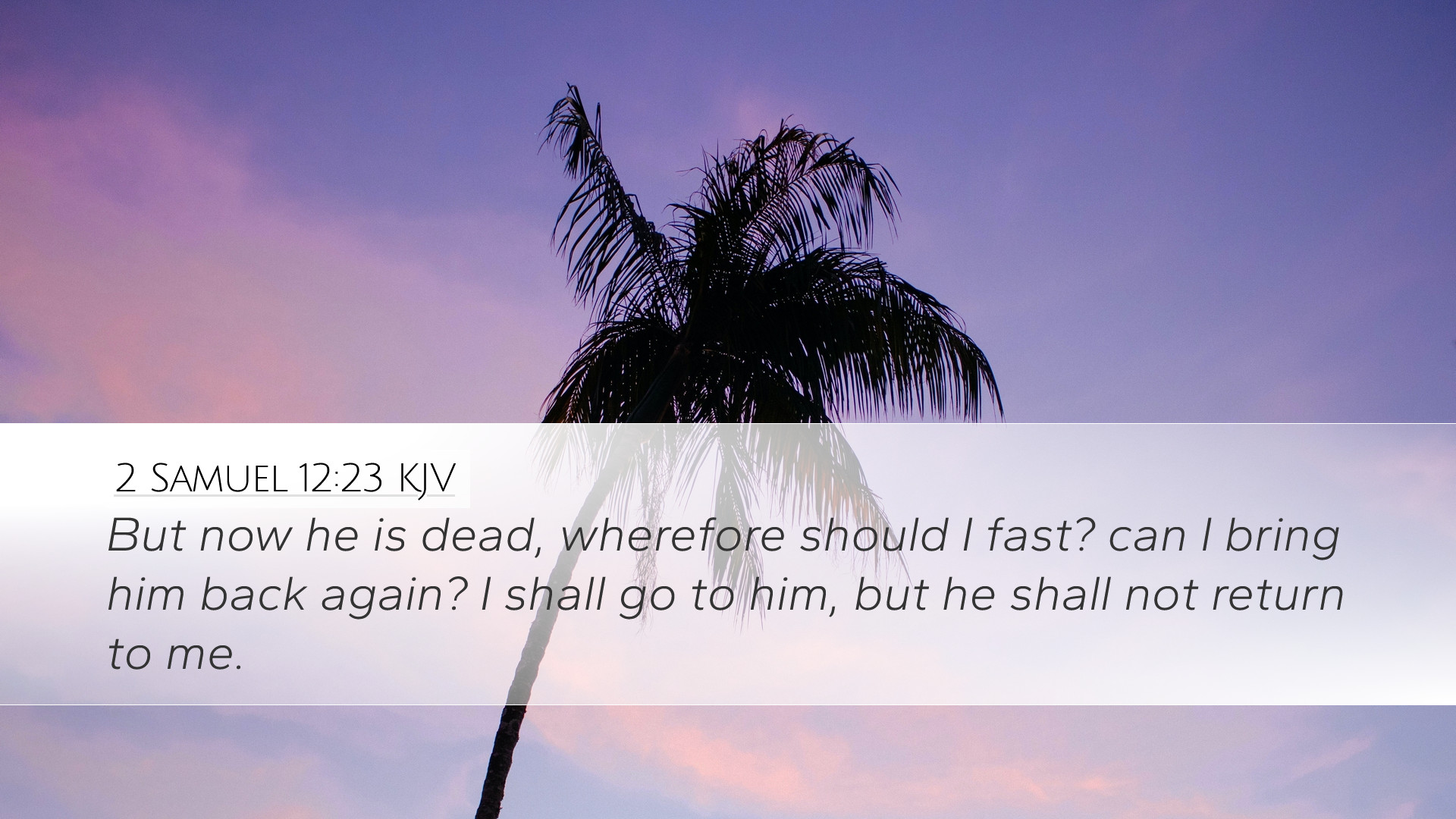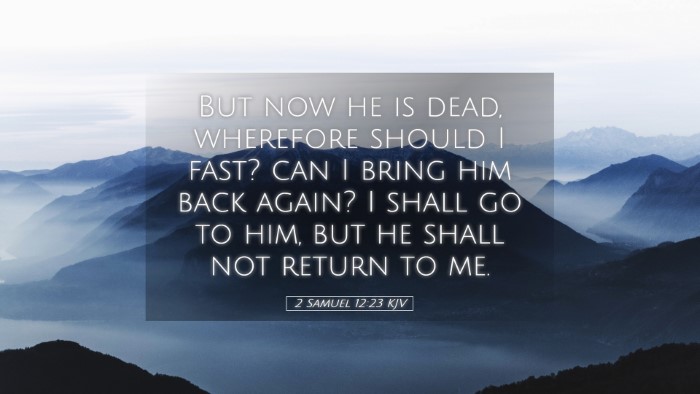Commentary on 2 Samuel 12:23
Verse Text: "But now he is dead, wherefore should I fast? Can I bring him back again? I shall go to him, but he shall not return to me."
Introduction
The verse in question, 2 Samuel 12:23, emerges from the powerful narrative surrounding King David after the death of his son, born from his sin with Bathsheba. This poignant moment encapsulates themes of grief, hope, and the nature of life after death, making it a significant passage for study and reflection.
Historical Context
This verse occurs after the prophet Nathan confronts David concerning his sin with Bathsheba and the subsequent death of their child. David's response to the news of his child’s death exposes deep emotional and theological insights that are invaluable for understanding the complexities of human suffering and divine sovereignty.
Commentary Insights
Matthew Henry
Matthew Henry reflects deeply on David's understanding of life and death. He notes that David’s statement points to a belief in an afterlife, indicating a yearning for reunion. Henry emphasizes the importance of acceptance in grief, suggesting that fasting for the dead does not alter God’s decrees. His reflection encourages the faithful to focus on hope rather than despair.
Albert Barnes
Albert Barnes offers a theological examination of the implications of this verse. He discusses how David acknowledges the finality of death ("he is dead") and illustrates the futility of grieving in a manner that challenges God’s decisions. Barnes remarks on David's faith that one day he will reunite with his son, suggesting a biblical perspective on the continuity of life after death which was somewhat unique at that time.
Adam Clarke
Adam Clarke takes a more psychological approach, analyzing David’s feelings of loss and resignation. He explores the contrast between David's previous mourning and his subsequent acceptance of God’s will. Clarke emphasizes the hope expressed in "I shall go to him", suggesting an awareness of the continuity of existence beyond this life, a concept that reverberates through both Old and New Testament theology.
Theological Implications
- Understanding Grief: This verse serves as a poignant reminder of how individuals cope with loss. David transitions from mourning to acceptance, providing a biblical framework for navigating grief.
- The Nature of God’s Sovereignty: David’s remarks reflect an understanding of God’s ultimate authority over life and death, teaching that human limitations do not change divine will.
- Hope of Resurrection: The hope expressed by David bears witness to a theological belief in life after death, suggesting continuity of relationship beyond physical existence.
Application for Pastoral Ministry
This passage offers rich material for pastoral care, particularly in navigating the complexities of grief with congregants. Pastors can draw on David’s experience to help individuals reconcile feelings of loss with faith in God’s plan. Furthermore, it underscores the importance of hope in the face of death, providing a foundational truth for funerals and memorial services.
Conclusion
2 Samuel 12:23 is a multifaceted verse that holds significant meaning for believers navigating grief, loss, and the hope of eternal life. The insights from Matthew Henry, Albert Barnes, and Adam Clarke collectively affirm the enduring faith in life beyond death. This text challenges pastors, scholars, and theologians to engage deeply with the realities of human suffering while anchoring their hope in the promises of God.


